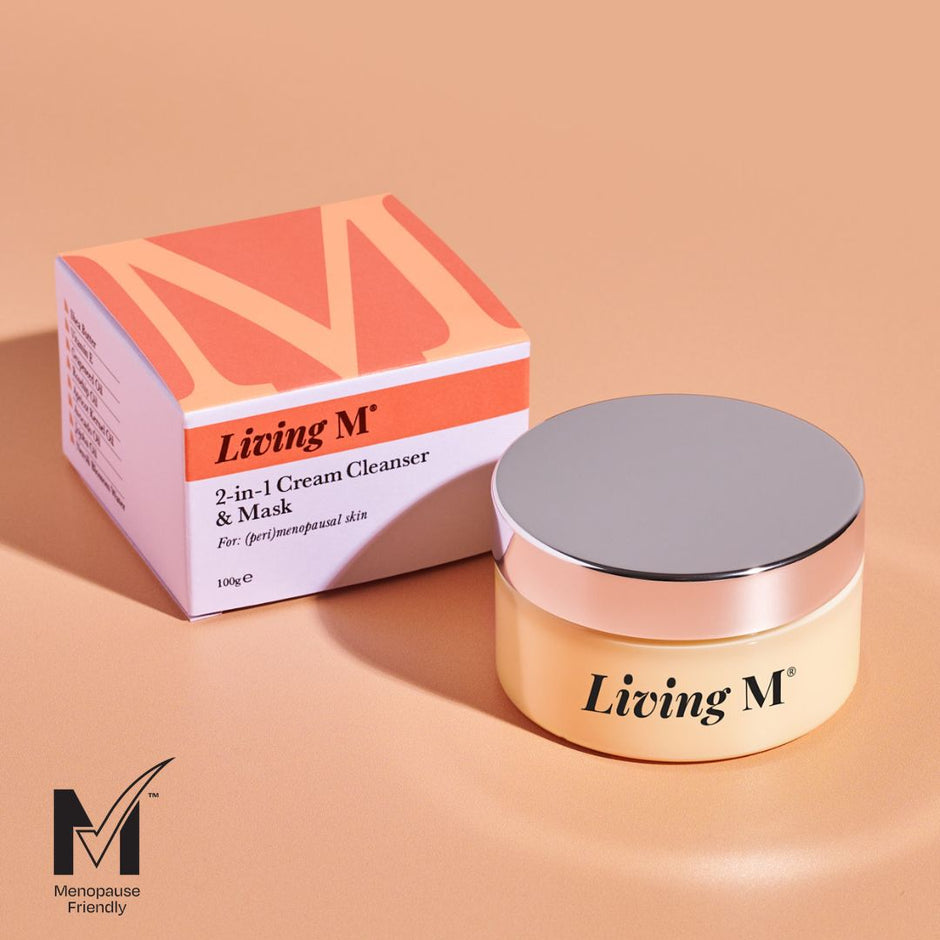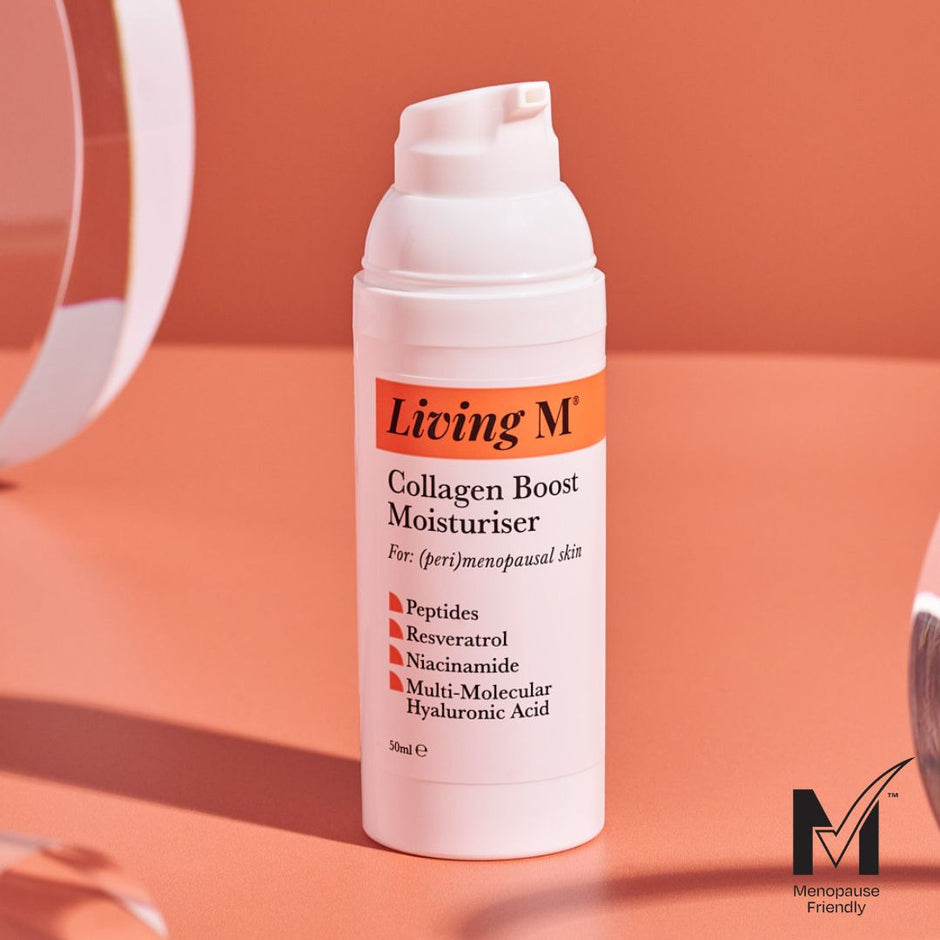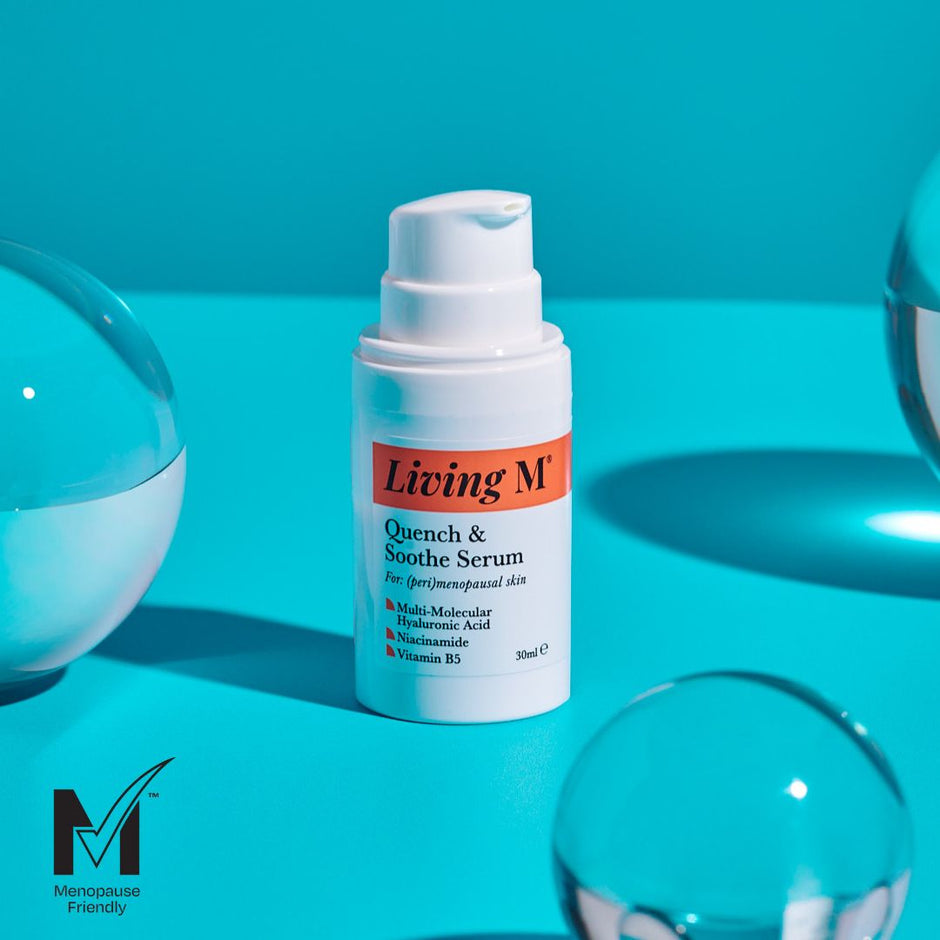How does Resveratrol compare to Vitamin C for menopausal skin?
When it comes to caring for menopausal skin, an excellent antioxidant is essential. It’s what you need to get your glow back for radiant, healthy skin. When it comes to incorporating one into your regime, there are many to choose from. In menopause, you need a powerhouse antioxidant to get maximum results. Technically antioxidants all do the same thing, but some will do much more for your skin than others. Here we compare two of the very best - Vitamin C and Resveratrol and examine why Resveratrol wins when it comes to menopausal skin. Less widely available in skincare formulations than Vitamin C, this exclusive supercharged ingredient is a key active in our Collagen Boost Moisturiser for (many) good reasons.
What Are Antioxidants?
Antioxidants are naturally occurring vitamins and minerals that protect your skin against free radical damage. Free radicals are molecules in the environment (like airborne pollutants) that damage collagen and weaken skin elasticity, leaving skin duller and lacking in radiance. Antioxidants protect your skin against environmental stressors and boost your complexion. In menopause, antioxidants are essential because collagen levels are depleted due to declining oestrogen levels. Our protective skin barrier also starts to weaken. A great antioxidant will protect collagen, boost radiance, allow skin to repair itself and support cellular renewal.
What is Vitamin C?
You’ve probably heard of Vitamin C – its well-known for its ability to brighten skin tone and it is used in lots of skincare products. Its renowned for good reason. It has many skincare benefits like boosting collagen production and controlling hyperpigmentation. There is no doubt it’s a powerful skincare ingredient, but it does have downsides.
There are different types of vitamin C – but ascorbic acid (also known as L-ascorbic acid) is the most potent and effective when used at the right levels. It gets great results but the problem is it can be irritating to some skin types. In menopause, as our skin barrier weakens due to declining hormones, skin can become much more prone to sensitivity and inflammation. You might find that this form of vitamin C is too irritating for your skin.
L-Ascorbic acid is also a relatively unstable ingredient that can oxidise. Vitamin C products formulated with L-ascorbic acid have a short shelf life (3 months) and as soon as it is opened and comes into contact with oxygen it starts to deplete. If your vitamin C has turned a brownish colour, it has oxidised and won’t work anymore. You shouldn’t use it after this point as it can damage your skin causing staining, irritation and potentially breakouts.
What is Resveratrol?
Resveratrol is a naturally occurring antioxidant found in the skin and seed of red grapes, all berries, and even dark chocolate. It is one of the top antioxidants when it comes to skincare. It belongs to a family of chemical compounds known as polyphenols, which give protection against UVA/UVB rays and other environmental stressors. It has many benefits when used on skin and is particularly effective when it comes to targeting the hormonal skin changes caused by the menopause. If you are suffering from any of these skin concerns, resveratrol is the antioxidant you need to be using; Sun damage, Breakouts, Redness, Uneven texture, Hyperpigmentation, Dullness, Bumps, Dryness, Fine lines, Wrinkles and Sensitivity.
The ultimate multi-benefit skincare ingredient Resveratrol performs a number of functions when applied to skin. Here are 10 reasons you need to incorporate Resveratrol in your menopausal skincare regime now
- It’s one of the best antioxidants around and works to scavenge free radicals and prevent further damage, guarding against environmental pollutants that make skin look dull
- Unlike vitamin C which can be irritating, resveratrol calms sensitive, over-exposed skin
- Resveratrol reduces the appearance of redness and irritation. Skin can become increasingly prone to redness, flushing and sensitivity in menopause so you need an antioxidant that will soothe rather than irritate
- Resveratrol brightens your complexion and boosts radiance to get that glowy look back
- Resveratrol helps skin maintain normal moisture levels which is key for menopausal skin which becomes much drier due to fluctuating hormone levels
- Resveratrol reverses the appearance of fine lines and wrinkles (we prefer to call them laughter lines)
- Resveratrol hydrates skin
- Resveratrol smooths skin’s texture
- It’s a phytoestrogen (which means it mimics the effect of oestrogen on your skin) that supports collagen synthesis for plumper, firmer skin
- Resveratrol helps reduces the appearance of breakouts that many menopausal women suffer from and is known to inhibit the growth of bacteria
So, whilst we are big fans of vitamin C, Resveratrol has to be the winner because it does so much more for your skin, and it is especially effective in targeting skin changes caused by hormonal fluctuations in menopause. Unlike vitamin C, you won’t find it in many skincare products but it was an absolute must-have when we were developing our Collagen Boost Moisturiser formulation.
As well as the skincare powerhouse resveratrol we teamed it with a whole host of other skincare goodies like collagen boosting peptides, more superstar antioxidants niacinamide and vitamin E, multi-molecular hyaluronic acid and nourishing natural butters. It’s got it all!




